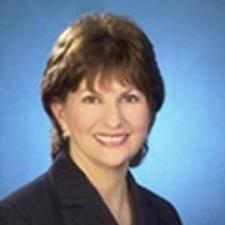BOB GARFIELD:
It's hard to change behavior behind the wheel, but there are precedents: seatbelt use and drunk driving. Candace Lightner founded Mothers Against Drunk Driving in 1980, after her daughter Cari was killed at the hands of a repeat offender. It was the second time one of her daughters had been victimized.
CANDACE LIGHTNER:
The first time her sister was injured, and basically nothing happened with the driver. When Cari was killed, I just assumed, because she was killed, that the driver would go to prison and he would be prosecuted. And that was definitely not the case.
I used to call it the only socially acceptable form of homicide in this country. Comedians made jokes about it. Everyone did it. I decided to do something about it, to start an organization so that attitudes would change and this would never happen again.
BOB GARFIELD:
And how long did it take for society at large to demand change?
CANDACE LIGHTNER:
Traffic safety experts told me it would take at least ten years, and it just happened within months. All of a sudden comedians stopped joking about it. You know, it wasn't as humorous as it used to be. And within a very short period of time lives started being saved.
BOB GARFIELD:
When it comes to texting while driving, how do you get from the sort of visceral understanding that it's wrong from actually changing your own personal behavior?
CANDACE LIGHTNER:
In the first place, I think we all believe it's not gonna happen to us. And until you start realizing that it does, and you do that when victims speak out or when it happens to someone close to you.
BOB GARFIELD:
I want to ask you a question that it - it upsets me to even have to ask it. Do we need another story as monstrous as Cari's?
CANDACE LIGHTNER:
We do. And there are some because I've met them and I work with them, but we're a nation that's run by management by crisis. Distracted driving hasn't quite reached the crisis that drunk driving did when my daughter was killed. I mean, 25,000 people a year were being killed. We had crashes where, you know, bus drivers were drunk and killed numerous children. There was a horrible crash that killed nine members of the same family, just before I went public with my organization, in a nearby county.
We haven't quite had that yet with distracted driving, so it doesn't have the same horror, I think, as you were talking about that drunk driving did. But it will, it will. Its day is coming. If we don't do something about it, it will.
BOB GARFIELD:
If laws are enacted, is that guaranteed to change behaviors?
CANDACE LIGHTNER:
The media attention that is generated because the law is changing actually is what I believe causes the change in behavior, more so than the laws. And especially when you have PSAs, etc., saying, you will be jailed if you are caught drunk driving, or your license will be taken away or your car will be taken away. That has an impact.
Right now, legislators aren't passing laws. You can still text while driving in a number of states. You can still talk on your cell phone while driving in a number of states. And until that changes people are gonna think it's socially acceptable.
BOB GARFIELD:
If you were running the media campaign, what would you do?
CANDACE LIGHTNER:
Oh, well I'll tell you, I would do exactly what I did with the drunk driving. Number one, I called on my governor to do a task force on the issue. I would generate grassroots support by trying to approach victims of distracted driving and have them speak out and speak before their legislators.
The other thing I did is I went to TV shows who had drunk driving on their shows, and I asked them if they would put a message on their shows. Cheers was one of the shows we went to, to say something like, you know, if you drink, don't drive, which they did.
And I see a lot of distracted driving on TV shows, a lot of cell phone usage on TV shows. I would go to them and say, you need to show by example that this is dangerous behavior.
BOB GARFIELD:
Don't take this the wrong way, but does this effort require someone who is just a total pain in the ass for -
[CANDACE LAUGHING]
- all parties concerned.
CANDACE LIGHTNER:
It requires leadership and passion. [LAUGHS]
BOB GARFIELD:
Yeah, that's, that's exactly what I meant.
[LAUGHS]
CANDACE LIGHTNER:
[LAUGHING] It requires someone who believes they're right, you know, and believes this is a just cause and believes that saving lives is worth just everything. And, and I do.
BOB GARFIELD:
All right, Candace. Thank you so much.
CANDACE LIGHTNER:
Okay, thank you.
BOB GARFIELD:
Candace Lightner has recently founded another traffic safety group, We Save Lives.
